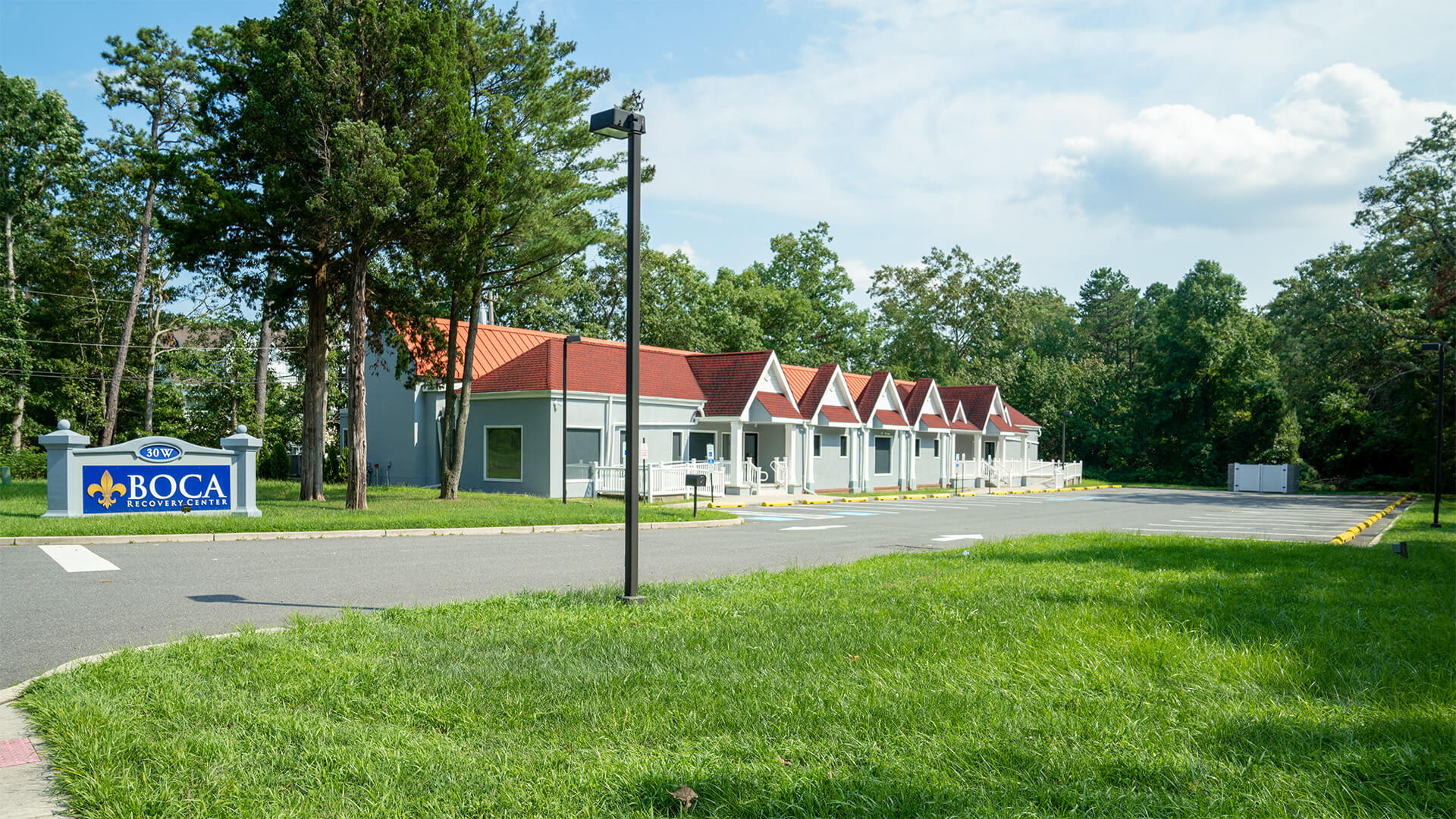
Cocaine Addiction Rehab Center in New Jersey
Cocaine Addiction Rehab Center in New Jersey
The Boca Recovery Center team in New Jersey has extensive experience in helping people get sober after chronic drug use, including cocaine abuse. Heal your body and mind with the right treatment in a beautiful location close to the Jersey Shore.
Cocaine is a versatile drug that can be smoked, snorted, or injected. No matter how you use it, the drug causes a buildup of the brain chemical dopamine.[1] The high is immediate, and the damage is significant.
If you’re struggling with cocaine or other substance use, our New Jersey Drug & Alcohol Rehab offers comprehensive, evidence-based care designed to help you heal safely and sustainably.
Abuse Statistics & Cocaine Addiction in New Jersey
Key Facts
- Cocaine users are driven to continue taking the drug for its desired effect. That desire is stronger than the fear of the potential consequences involved in buying or using cocaine.[2]
- Between 2017 and 2019, nearly 2.5% of New Jersey residents had used illicit drugs like cocaine at least once.[3]
- About 5% of people entering New Jersey treatment programs report that cocaine is their primary drug.[4]
- Most people who enter cocaine treatment programs also use other drugs simultaneously.[5
Getting Specialized Cocaine Addiction Treatment in New Jersey
Cocaine is powerful, and quitting the drug isn’t easy, especially if you try to do so alone. Entering Boca Recovery Center in New Jersey is the best way to help you get sober safely and successfully through our New Jersey Drug & Alcohol Detox services.
Many cocaine dealers mix their doses with substances like amphetamines and opioids. You may never know you’re hooked on other substances until you try overcoming cocaine addiction on your own.[6] A cocaine addiction treatment program at Boca Recovery Center can make a big difference in your long term recovery, especially at our inpatient rehab and outpatient rehab facilities designed to meet your unique needs.
Your treatment team will watch your cocaine withdrawal symptoms, offer the appropriate medications, and monitor your progress. When you’re feeling stronger, it’s time to access a completely different type of care at Boca Recovery Center.
Cocaine Addiction Rehab at Boca Recovery Center in New Jersey
The cocaine rehab program at Boca Recovery Center in New Jersey is science-based, compassionate, and comfortable. You’ll get the help you need in an environment you’ll never forget under the clinical expertise of our staff.
Many people with cocaine addiction enter treatment with malnourishment, as the drug reduces appetite.[6] At our cocaine addiction treatment center, you’ll be provided with gourmet meals, plenty of fluids, and customized meal plans. These will help heal your body while your mind adjusts to sobriety.
You’ll spend every day in therapy, working with an expert on understanding your cocaine addiction. Tools like cognitive behavioral therapy can help you break down triggers and build sobriety skills that will help you lead a healthy life. Support group meetings will help you connect with peers and develop healthy relationships. And education will help you understand how to build a safer life once treatment is complete.

